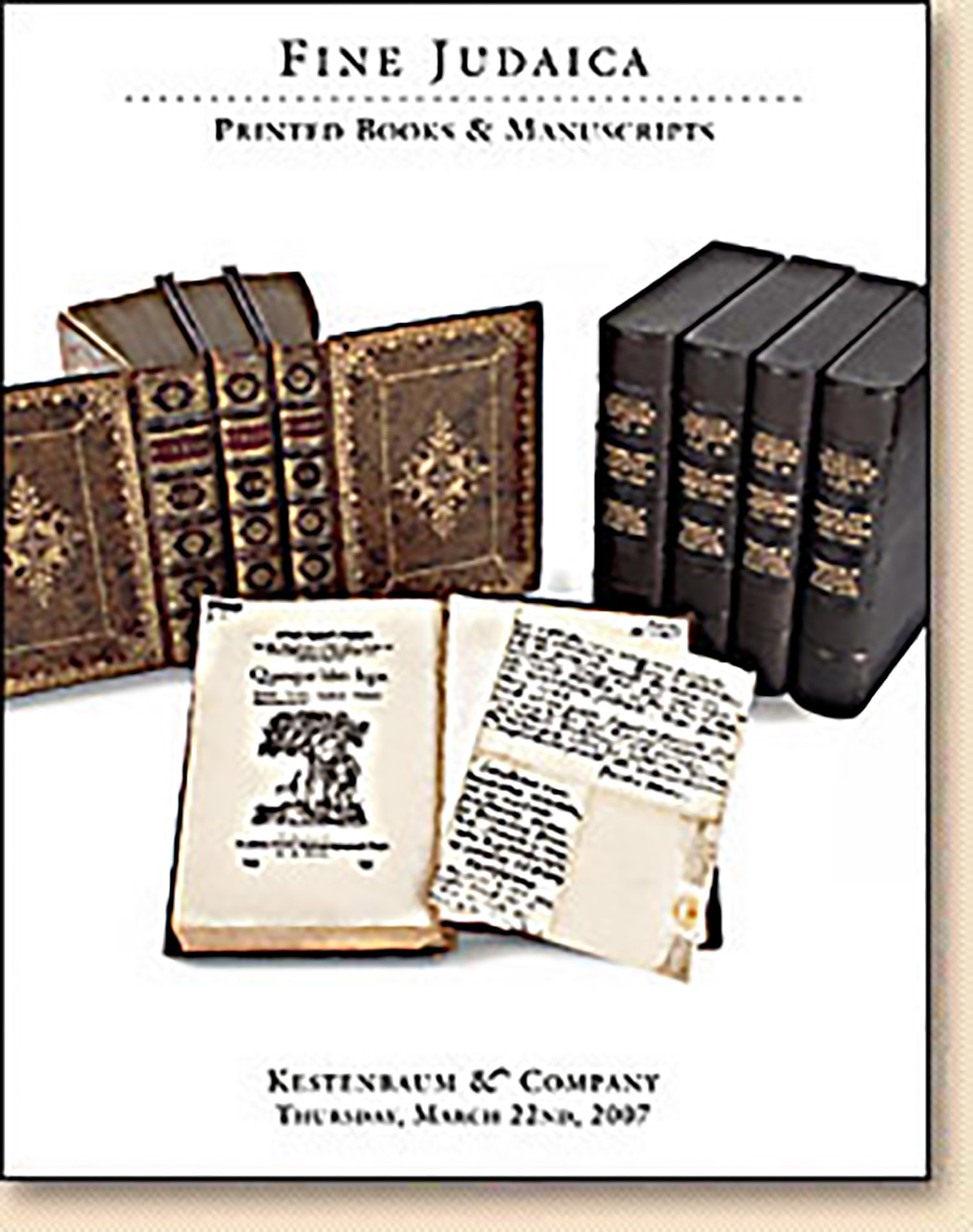(SEPHARDICA)

AUCTION 36 |
Thursday, March 22nd,
2007 at 1:00
Fine Judaica: Printed Books & Manuscripts
Lot 179
(SEPHARDICA)
Amsterdam: no printer v.d
Est: $3,000 - $5,000
The ‘Santa Companhia de Dotar’ Society was one of the oldest international Sephardic charitable societies in Western Europe. Its first rules were printed in Amsterdam as early as 1615. The Society was to provide dowries for needy girls and had departments in Venice, Hamburg, Amsterdam, and later London. For the history of the Society in Holland see W.Chr. Pieterse, 350 Jaar Dotar: Gedenkschrift. (Amsterdam, 1965).
Offered here are a rare set of regulations of the Dotar Society of the Portuguese Jewish community of Amsterdam. Paradoxically the ‘newest’ rules, made in 1812 and 1825 are the rarest, as they only consist of a couple of leaves. The fact that they were still drawn up in the Portuguese language, at a time when the members of the Portuguese Jewish congregation were well used to conducting their affairs in Dutch, adds to the interest of these documents.
No copies of this complete set of rules published between 1756 and 1825 can be found in Amsterdam (not in Ets Haim, not in Bibliotheca Rosenthaliana, not in the Gemeentearchief at Amsterdam). Not in Jewish National and University Library, not in British Library, not in Hebrew Union College, Cincinnati
